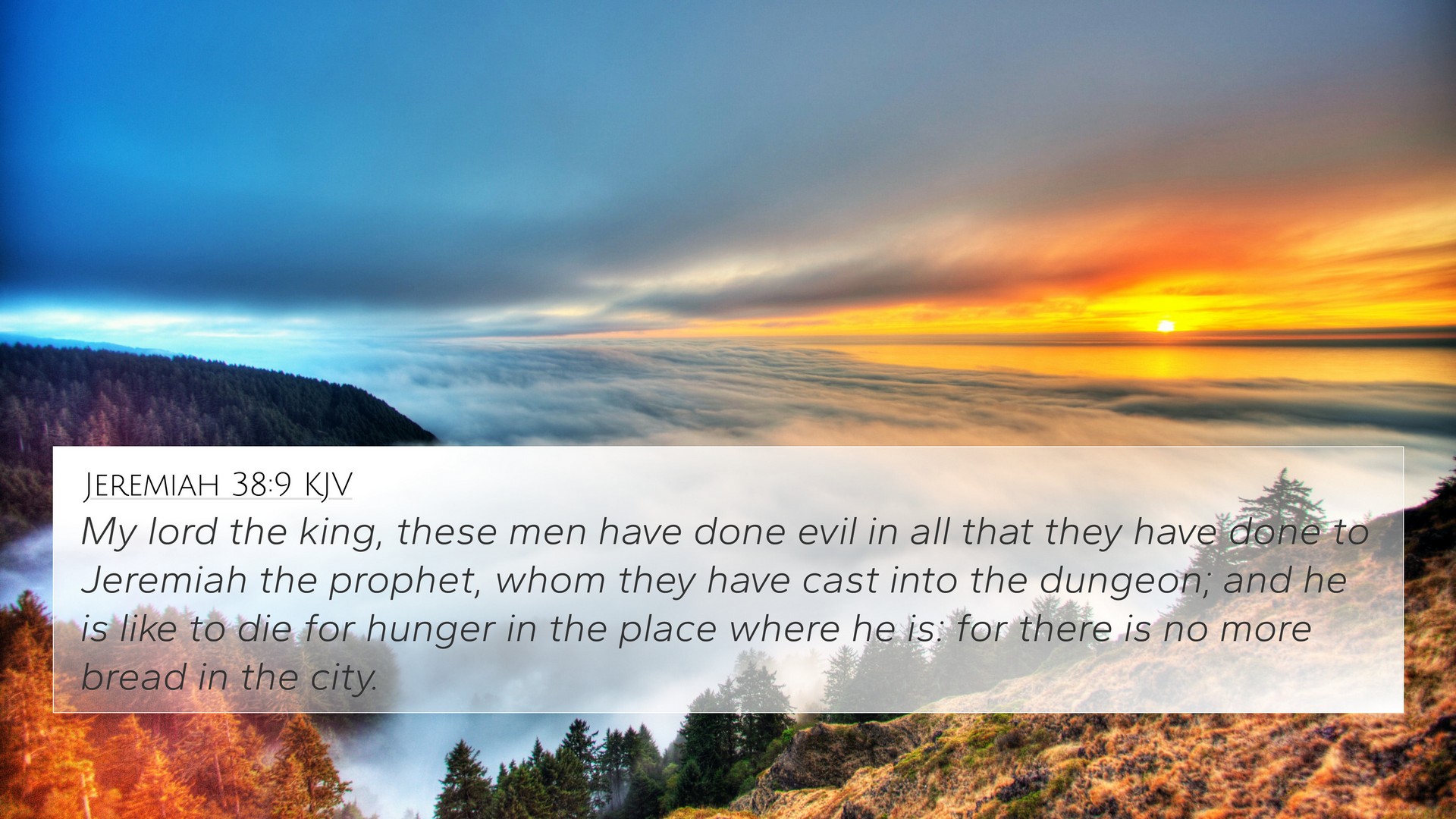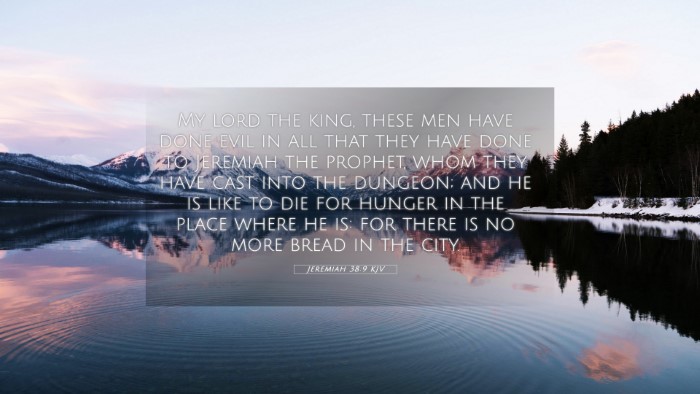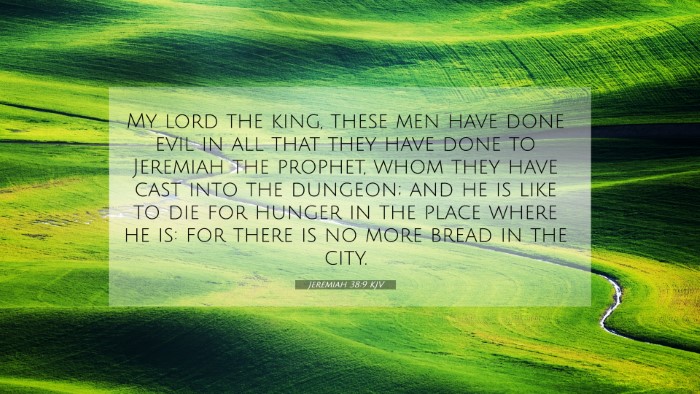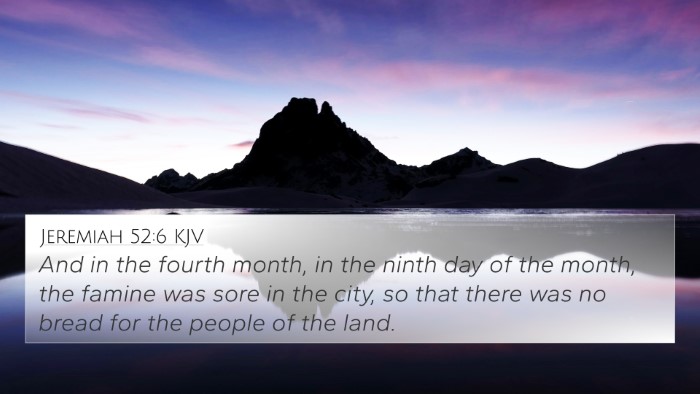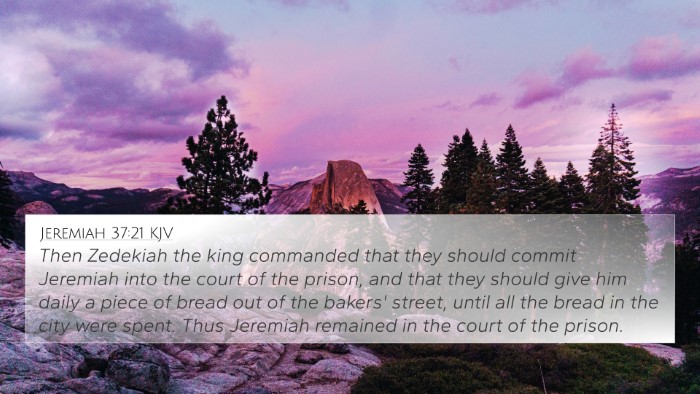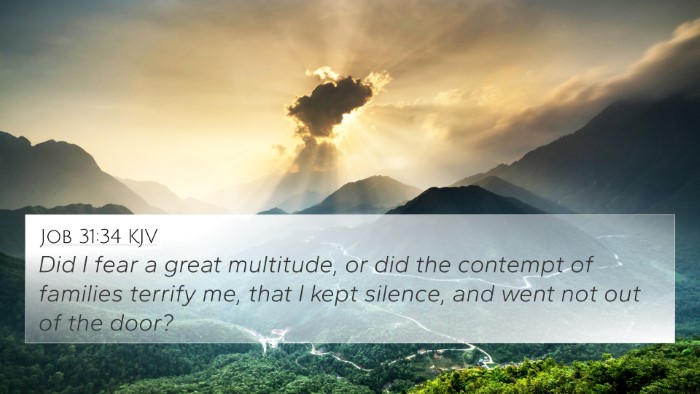Understanding Jeremiah 38:9
Jeremiah 38:9 states: "My lord the king, these men have done evil in all that they have done to Jeremiah the prophet, whom they have cast into the dungeon; and he is like to die for hunger in the place where he is: for there is no more bread in the city." This verse captures a moment of deep concern and urgency, highlighting the injustice done to the prophet Jeremiah and his dire circumstances.
Summary of Themes
The overarching themes in this verse include injustice, the plight of God's messengers, and the consequences of a corrupted society. Jeremiah expresses the moral and ethical wrongs committed against him, illustrating a poignant scenario where truth and righteousness are severely punished.
Commentary Insights
Drawing insights from various public domain commentaries, we can glean a deeper understanding of this verse.
-
Matthew Henry:
Henry highlights Jeremiah's integrity as a prophet, emphasizing that he was imprisoned not for wrongdoing but for faithfully delivering God's message. The mention of the “dungeon” addresses the depths of Jeremiah’s suffering and isolation, representing a faithful servant of God being neglected and left to starve.
-
Albert Barnes:
Barnes notes the gravity of the situation and the culpability of those who mistreated Jeremiah. He discusses the significance of protecting prophets, as they were vital in instructing the populace and warning them from impending judgment. This ties into the larger Biblical narrative of how prophets have often faced persecution.
-
Adam Clarke:
Clarke adds an interpretative layer by suggesting the implications of Jeremiah’s suffering, relating it to the broader theological context of sacrifice for truth. He indicates that in facing such trials, the prophet serves as a foreshadowing of Christ and the suffering He would eventually endure for humanity’s redemption.
Bible Cross-References
Jeremiah 38:9 connects with several other Bible verses that reinforce its themes:
- Matthew 5:10-12: Blessings are promised to those who are persecuted for righteousness's sake.
- 2 Timothy 3:12: All who desire to live godly in Christ Jesus will be persecuted.
- Hebrews 11:36-38: This passage recounts the suffering of prophets and the faithful who endured hardships.
- Luke 16:20-21: The plight of the poor and abandoned, akin to Jeremiah's situation.
- Psalm 69:14-15: A plea for relief from suffering, paralleling Jeremiah’s cry for help.
- Jeremiah 37:15: The imprisonment of Jeremiah further links the narrative of persecution against him.
- John 15:20: A reminder that a servant is not greater than his master; if they persecuted Jesus, they would persecute His followers.
Thematic Connections
The themes of suffering, injustice, and the consequence of loyalty to God permeate throughout the Bible. This particular verse sheds light on the prophetic tradition and the inevitability of suffering for those who stand for truth in a corrupt world.
Cross-Referencing Methods
To delve into the Bible’s interconnectedness, tools for cross-referencing such as a Bible concordance and Bible cross-reference guide can enhance understanding. Studying the cross-referenced themes in the Bible can also illuminate how various texts inform one another, creating a richer tapestry of faith and divine revelation.
Practical Applications
For those seeking empowerment through the scriptures, understanding cross-references like those found in Jeremiah 38:9 can provide substantiation for life’s challenges. Reflecting on similar themes found in other verses can develop a robust faith that seeks to understand trials as part of a divine narrative that upholds righteousness.
Conclusion
Jeremiah 38:9 is a poignant reminder of the struggles faced by prophets throughout the ages. By understanding the connections between multiple Bible verses, we see a profound testimony of faithfulness amidst adversity.
